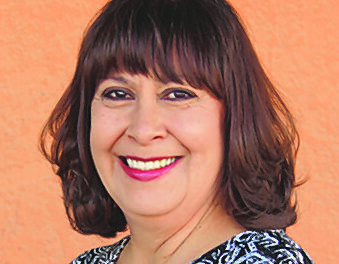“Thank you for your service,” is an expression we use to show our appreciation to military, law enforcement and first responders. We also say it to health care workers, truck drivers, teachers and many essential workers.

Judge Miles Tafoya
There is one group, however, that we do not express our gratitude to, so allow me to say it now: Thank you to everyone in the community who has served on a trial jury or on a grand jury. Also, thanks are in order for those who have been summoned or subpoenaed to court to testify and have shown up. Without these people, we would not be able to uphold the Sixth Amendment of the U.S. Constitution.
Let me explain these different services and their importance to our community. Most people balk at jury duty. I know the first time I received a summons while attending college, I thought, “Total disruption. How do I get out of this?”
Jury duty has a negative connotation and feels like punishment to some people. However, those who have been charged with a crime have the constitutional right to a trial by a jury of their peers, hence jury duty is an important constitutional duty.
In a jury trial, charges have already been established against someone, and it is the prosecution’s responsibility to prove the case to the jury beyond a reasonable doubt. The jury then decides if the defendant is innocent or guilty.
Grand jury is a group of our community members who are presented with evidence and testimony to decide if someone will be charged with a crime. Grand juries usually serve for several months while hearing cases on specific days. The Grand jury decides what moves forward in the courts and what is dismissed. Testimony and evidence are presented to the grand jury and it is up to the prosecutor to satisfy the jury that a crime has been committed with enough probable cause to bring criminal charges. The grand jury has the deciding factor on whether a district attorney’s office should proceed forward in prosecution.
Another important aspect of community service involves responding to subpoenas for court. A subpoena is a document that compels or orders someone to court to testify under oath. Victims, witnesses and anyone who may testify in a criminal case can receive a subpoena. Again, because most people are given an “order” it may feel like a punishment with a negative undertone and one might be tempted to brush it off.
I want you to consider this scenario. You are driving home from a long day and you have to stop for gas. You witness a couple arguing in a car. You try and ignore it and finish pumping gas so you can get home. The arguing gets louder. You look up and see one person strike the other several times in the face. You call the police and they show up and take your statement.
You get a subpoena to court to testify. You tell yourself, “I’m not going to go, it is not my business and they don’t need me. The victim can testify, I am not needed. I have too much happening already.”
The victim is scared to testify so they decline to participate. The state now has no witnesses or victims and cannot proceed in the prosecution. The case gets dismissed.
Now, imagine the person who was assaulted was your daughter, son, mother, father or friend. Would you want whoever was involved to show up and testify to the truth?
So the next time you receive a summons, instead of thinking how you’re going to get out of it, please recognize that your community needs your service and participation.
John Adams said, “Representative government and trial by jury are the heart and lungs of liberty.” I say community involvement is part of the foundation to our judicial process and we must keep it breathing freely. I will leave you with this last thought: If we don’t step up to help each other, who will?
Again, thank you for your service.















